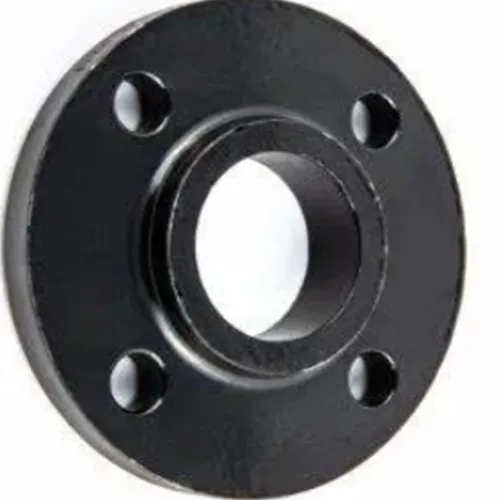-
Cangzhou Yulong Steel Co., Ltd.
-
Phone:
+86 13303177267 -
Email:
admin@ylsteelfittings.com
- English
- Arabic
- Italian
- Spanish
- Portuguese
- German
- kazakh
- Persian
- Greek
- French
- Russian
- Polish
- Thai
- Indonesian
- Vietnamese
- Zulu
- Korean
- Uzbek
- Hindi
- Serbian
- Malay
- Ukrainian
- Gujarati
- Haitian Creole
- hausa
- hawaiian
- Hebrew
- Miao
- Hungarian
- Icelandic
- igbo
- irish
- Japanese
- Javanese
- Kannada
- Khmer
- Rwandese
- Afrikaans
- Albanian
- Amharic
- Armenian
- Azerbaijani
- Basque
- Belarusian
- Bengali
- Bosnian
- Bulgarian
- Catalan
- Cebuano
- China
- China (Taiwan)
- Corsican
- Croatian
- Czech
- Danish
- Esperanto
- Estonian
- Finnish
- Frisian
- Galician
- Georgian
- Kurdish
- Kyrgyz
- Lao
- Latin
- Latvian
- Lithuanian
- Luxembourgish
- Macedonian
- Malgashi
- Malayalam
- Maltese
- Maori
- Marathi
- Mongolian
- Myanmar
- Nepali
- Norwegian
- Norwegian
- Occitan
- Pashto
- Dutch
- Punjabi
- Romanian
- Samoan
- Scottish Gaelic
- Sesotho
- Shona
- Sindhi
- Sinhala
- Slovak
- Slovenian
- Somali
- Sundanese
- Swahili
- Swedish
- Tagalog
- Tajik
- Tamil
- Tatar
- Telugu
- Turkish
- Turkmen
- Urdu
- Uighur
- Welsh
- Bantu
- Yiddish
- Yoruba

Aug . 14, 2024 19:50 Back to list
Quality Weldable Steel Pipe Fittings for Reliable and Durable Construction Applications in Various Industries
Weldable Steel Pipe Fittings An Overview
Weldable steel pipe fittings play a crucial role in various industries that involve the transportation of fluids and gases. These fittings are designed to connect different sections of piping systems, ensuring a secure and leak-proof operation. Made from high-quality steel, weldable pipe fittings offer excellent durability and strength, which are essential for demanding applications such as oil and gas, chemical processing, and construction.
Types of Weldable Steel Pipe Fittings
Weldable steel pipe fittings come in various shapes and sizes, each tailored to specific requirements. The most common types include
1. Elbows Used to change the direction of the piping, elbows typically come in 90-degree and 45-degree angles. They can be welded directly onto the pipe ends, facilitating seamless transitions in fluid flow.
2. Tees These fittings allow for the branching of the main pipe, creating a T-shape that enables multiple flow paths. Tees are essential for systems that require splitting or merging of fluids.
3. Reducers To connect pipes of different diameters, reducers are utilized. They come in concentric and eccentric designs, ensuring a smooth transition from a larger to a smaller diameter, which helps maintain fluid velocity and pressure.
4. Caps Used to close the ends of pipes, caps are vital for maintaining system integrity and preventing contamination when the system is not in use.
5. Flanges While not technically a pipe fitting, flanges are often welded to the ends of pipes or fittings to enable easy assembly and disassembly of piping systems. They provide a robust connection point for maintenance and inspection.
Benefits of Weldable Steel Pipe Fittings
weldable steel pipe fittings

The advantages of using weldable steel pipe fittings are numerous
- Strength and Durability Steel is renowned for its tensile strength, making it an ideal material for fittings subjected to high pressures and temperatures. Weldable fittings can withstand harsh conditions, ensuring long-lasting performance.
- Corrosion Resistance Many weldable steel fittings are coated or treated to resist corrosion, which is crucial in industries where exposure to liquids and gases can degrade materials over time.
- Customizability Weldable steel fittings can be manufactured to meet specific engineering requirements, accommodating unique design challenges in various applications.
- Cost-Effectiveness While initial costs may be higher than other materials, the long lifespan and low maintenance needs of steel fittings often result in lower total costs over time.
Applications
Weldable steel pipe fittings are widely used in several sectors. In the oil and gas industry, they are essential for building pipelines that transport crude oil and natural gas. In construction, they are integral to plumbing systems, heating installations, and cooling systems. The chemical processing industry also relies on these fittings to securely transfer liquids and gases without the risk of leaks or contamination.
Conclusion
Weldable steel pipe fittings are indispensable components in creating efficient and reliable piping systems. Their strength, durability, and versatility make them suitable for various applications across multiple industries. As technology advances, the materials and manufacturing processes of these fittings continue to improve, ensuring that they meet the evolving needs of engineers and industry professionals. Investing in high-quality weldable steel pipe fittings is a step towards building a robust infrastructure capable of supporting today’s complex fluid transportation challenges.
Latest news
-
ANSI 150P SS304 SO FLANGE
NewsFeb.14,2025
-
ASTM A333GR6 STEEL PIPE
NewsJan.20,2025
-
ANSI B16.5 WELDING NECK FLANGE
NewsJan.15,2026
-
ANSI B16.5 SLIP-ON FLANGE
NewsApr.19,2024
-
SABS 1123 FLANGE
NewsJan.15,2025
-
DIN86044 PLATE FLANGE
NewsApr.19,2024
-
DIN2527 BLIND FLANGE
NewsApr.12,2024
-
JIS B2311 Butt-Welding Fittings LR/SR 45°/90° /180°Seamless/Weld
NewsApr.23,2024











